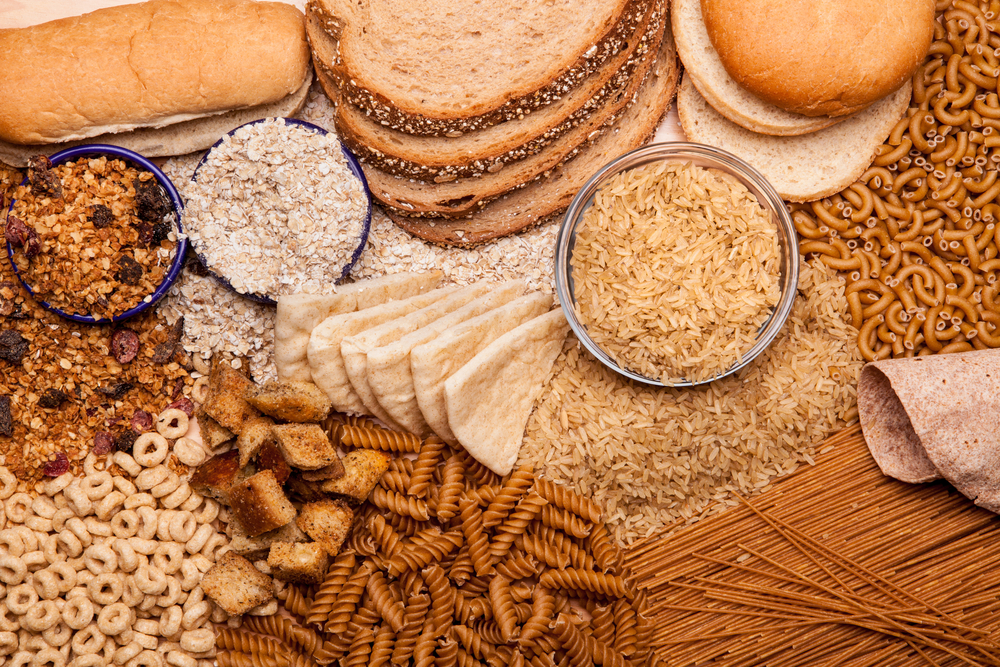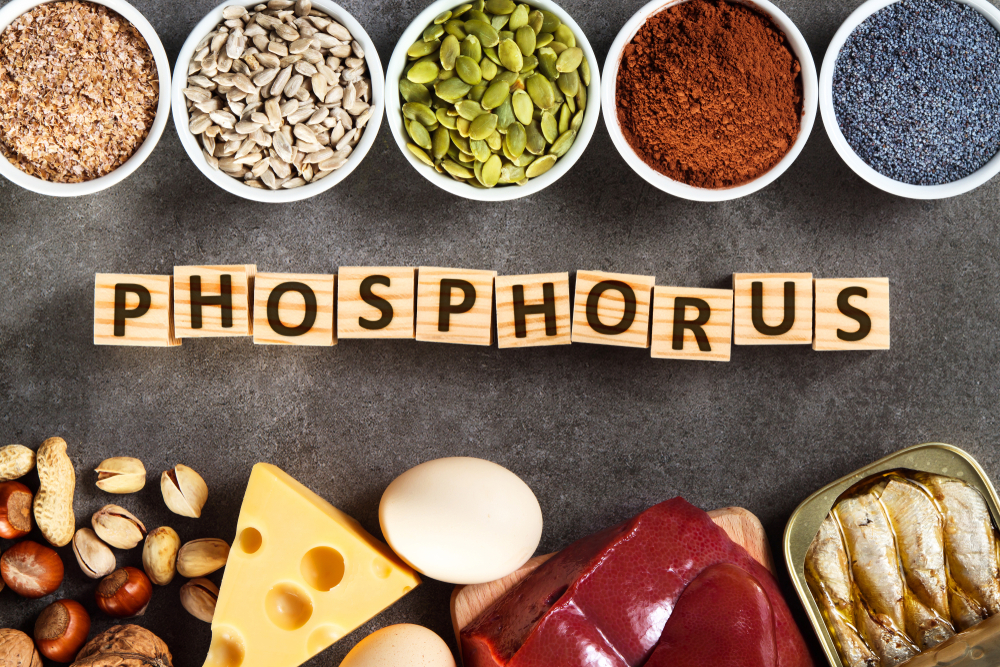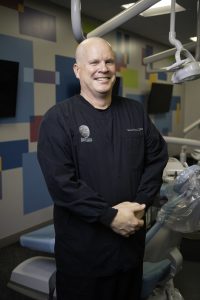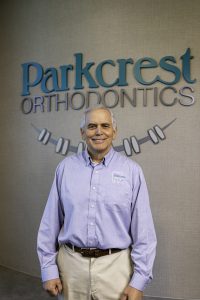Parkcrest Dental Group wants you and your family to have healthy teeth. That includes eating the right foods to promote good oral hygiene in addition to brushing and flossing every day.
Take a look at our complete guide to nutrition for teeth by our dentists in Springfield, Missouri, who answer several common questions about this topic.
Why is nutrition important for teeth?
You may be at a higher risk for tooth decay or gum disease, and it may be more difficult for your mouth to fight off infections without the right nutrition.
What foods are best for teeth?
Your teeth can get stronger on the inside with a balanced diet filled with fruits, vegetables, protein, grains, and dairy.
Dairy Foods
Consider dairy products to help strengthen teeth and bones thanks to calcium and phosphorus.
- Low-fat or fat-free milk. Serve it on your cereal, drink it in a glass, or add it as a smoothie ingredient.
- Yogurt. Go for yogurt without added sugars to reduce the sugar that could coat your teeth and cause decay.
- Cheese. Many store-bought pieces of cheeses provide fortified amounts of calcium.
Protein-Rich Foods
You have two sources of protein to choose from that can help your teeth. Animal-based protein provides plenty of B-vitamins, while vegetarian sources of protein offer phytonutrients and essential minerals.
- Canned fish. Canned salmon, in particular, has a lot of calcium in it.
- Almonds. These nuts have phosphorus and vitamin E.
- Eggs. Packed with protein, eggs also contain phosphorus.
- Fortified soy products. You have a ton of choices when it comes to soy, from milk and yogurt to protein you can use as a meat substitute. Fortified soy contains calcium for strong teeth and bones.
- Fish. Look for your favorite fish for a meal because they contain phosphorus.
- Nuts. Almonds are a great place to start, but there are plenty of other nuts and seeds that have phosphorus in them.
- Lean meats. Whether you prefer chicken, beef, or pork, lean meats are also a good source of phosphorus for your teeth.
- Beans. This vegetarian source of protein has a lot of phosphorus for healthy teeth.
Grains
Can’t get your kids to eat fresh foods? Try some of these grains to have them get more calcium.
- Fortified cereal, oatmeal, and bread all have high amounts of calcium.
- Cooked amaranth. Like its cousin, quinoa, amaranth is a grain native to Central and South America. For children with a gluten intolerance, amaranth offers a way for kids to eat more grains and get more calcium.
Fruits & Vegetables
You have great options for non-protein sources of calcium. Fruits and vegetables also provide vitamin C, an essential nutrient that promotes gum health.
Dark, green leafy vegetables for calcium. Consider cooked kale, spinach and collard greens for vegetable sources of calcium. A half-cup of collard greens provides 175 mg of calcium, or about 18 percent of your daily supply. Spinach also contains vitamin C.
Citrus fruits. Oranges, lemons, limes, and grapefruits are all high in vitamin C, with oranges as the most popular choice. Fortified orange juice may also have calcium in them. Please eat these foods with other types of foods because citrus fruits are high in acid.
Tomatoes. Tomatoes are great on salads, and they’re high in vitamin C.
Peppers. Green, red, and yellow peppers are excellent sources of vitamin C.
Broccoli. Broccoli is a favorite for kids when they eat vegetables, particularly when you add cheese to it. Better yet, combine cheese with broccoli for calcium and vitamin C together.
Why is calcium good for my teeth?
Calcium strengthens the outer shell of your teeth because enamel contains this vital mineral. Without enough calcium, bones become weaker and teeth become softer. Calcium is crucial for kids because it helps adult teeth grow and develop before they grow in.
Why is phosphorus good for my teeth?
Phosphorous, along with vitamin D, helps your body absorb calcium properly. It also plays a role in new bone formation while keeping bones and teeth from getting brittle.
Why is vitamin C good for my teeth?
Vitamin C helps keep connective tissues in your gums strong while reducing swelling. Your gums help keep your teeth in place.
What foods help reduce tooth decay or repair teeth?
Once your teeth lose enamel, you can’t get it back since enamel is a mineral substance and your body can’t produce any more of it.
However, eating some foods can assist in preserving the enamel that is still healthy.
Protein and greens can help reduce tooth decay by keeping enamel strong.
Green and black tea (without sugar) can neutralize plaque-causing bacteria.
Fat-free and low-fat dairy with high amounts of calcium.
Apples, strawberries, cranberries, and kiwis have a lot of vitamin C for good gum health.
What minerals and vitamins are good for teeth?
Calcium, because it helps to form teeth and bones.
Vitamin D is necessary because it synergizes with calcium to help your body absorb calcium more efficiently.
Vitamin K is great for blood flow, and it allows your body to produce more osteocalcin, a protein that supports bone strength.
Potassium combines with magnesium to prevent your blood from becoming too acidic. When your blood is too acidic, it can leach (remove) calcium from your bones and teeth.
Phosphorous also supports calcium absorption.
Vitamin A assists soft tissues by keeping them moist, which means it may prevent dry mouth and helps your mouth heal more quickly.
Vitamin C protects against gingivitis, a preliminary form of gum disease.
What foods are bad for my teeth?
Any foods with high amounts of processed sugar are bad for your teeth, including:
Sugary sweets and candies, like chocolate bars, hard candies, jelly beans, lollipops, caramels, stay in your mouth for long periods of time.
Sweet desserts such as cakes, cookies, pies, doughnuts, and similar foods.
Soft drinks, even diet ones, because they contain acid. Even worse, drinks easily get in between teeth.
Pickles contain vinegar, which is an acid. Some pickled foods also contain sugar, which makes them worse.
Wine, both red and white, causes trouble due to the erosive acid and tannins. The acid can cause tooth decay, while tannins may dry out your mouth.
Sugary juice drinks. Try to drink 100% juice instead of juice drinks. Juice drinks typically contain added sugars.
Sports beverages. While sports beverages contain electrolytes to help your body replenish lost minerals, they also contain added sugars that can erode your teeth.
Who can give me tips on nutrition for my teeth?
Parkcrest Dental Group in Springfield, Missouri, can give you and your family tips on the right foods to eat for your teeth. Contact Parkcrest Dental or call (417) 887-1220 for more information or to make an appointment with us.









